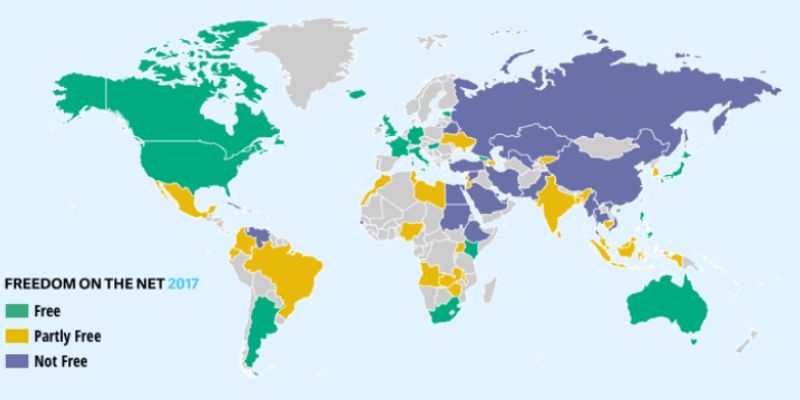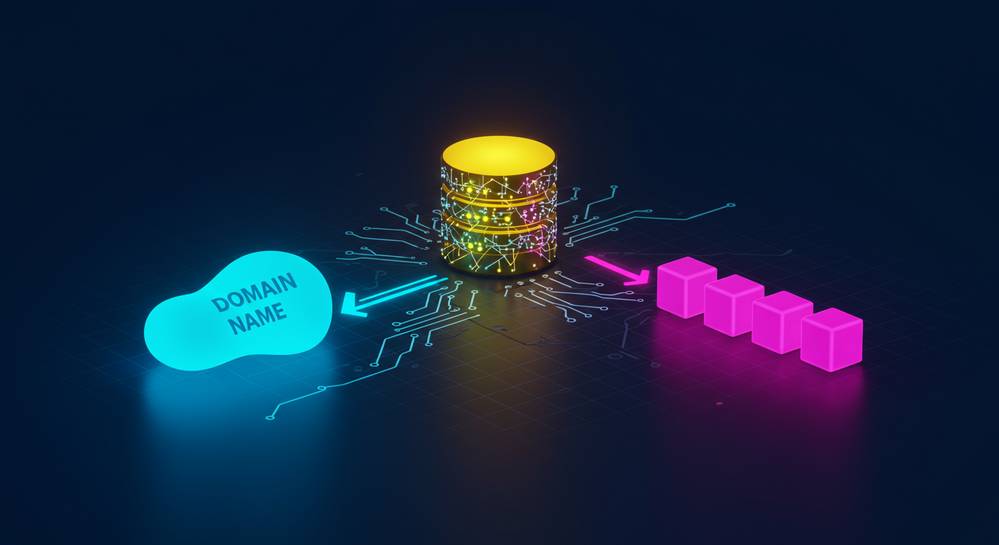Internet freedom and censorship around the world isn’t just a buzz phrase; it is a critical battleground that affects us all, no matter where we click. As I dive deep into the global state of our online world, I’ll unpack how web regulations shape our everyday access. I’ll compare countries on cyber freedom rankings—some excel, others control. See, freedom isn’t uniform; it’s a reflection of where you are and the battle lines drawn in the digital sand.
I’ll also pull back the curtain on censorship tactics that stifle free speech. From China’s Great Firewall clashing with digital dissent to chilling surveillance laws curbing what we say online, the fight is fierce. And if you think you’re powerless, think again. I’m bringing you the tools and tech that guard your digital privacy: VPNs, anonymous browsing, and the TOR browser. These are the shields for internet users against prying eyes.
Lastly, we’ll explore the actions igniting change, the policies shaping our future, and the crusade to keep the web open for everyone. The landscape changes by the tweet, and staying informed is your power play. So gear up—knowledge is your key to navigating the complex terrain of Internet freedom and censorship around the world.
Assessing the State of Internet Freedom Worldwide
Global Web Regulations and Their Impact on Users
In many places, the digital rights movement is in full swing. Yet global web regulations often hit roadblocks. Governments vary in how they watch us online. For instance, some use surveillance laws to keep tabs on their citizens. This raises big questions about our privacy online.
What are digital rights? They’re the freedoms we should all have on the internet. But these freedoms are under threat when rules get too tight. The Great Firewall of China is a big example. It blocks lots of websites for those inside the country. Knowing this, people take action. Digital activism fights for online free speech. It makes sure our voices are heard.
Cyber Freedom Rankings: How Countries Compare
You might wonder, “What’s a cyber freedom ranking?” It’s a score that tells us how free a country’s internet is. The Freedom on the Net report shares this each year. These rankings show us who keeps the net open and who locks it down. Countries are all over the map on this.
Nations like Iceland keep the net pretty free. There, you can say what you think and explore without much worry. Others, like China, keep a much tighter lid on web access. There’s a tool that comes in handy here – VPNs. They let users in China see things their Great Firewall has hidden. So, it’s clear—where you live can really change your online life.
Cyber freedom rankings help us see gaps in internet access. They show how much control each place has over online talk and info. They let us ask: Are we okay with these gaps? What can we do to close them? These are tough questions, and the answers are key to better net rules for all.

Censorship Tactics and the Fight for Free Speech
The Great Firewall of China Versus Digital Activism
The Great Firewall of China is tough, but activists are tougher. China’s digital wall blocks many sites and apps. Yet, the digital rights movement is strong. They know online freedom is key. Activists are smart. They find ways around the blocks. They use VPNs and send secret messages. They fight for a free internet, day and night. Their battle is hard but their spirit is strong.
Digital activism does more than dodge firewalls. It sparks big change. People everywhere use the net to speak out. They share ideas and tell their stories. They want the same rights as others, online and off. They chase a dream of free speaking and fair laws. These fighters won’t rest. They keep pushing, hoping for a web without walls.
Surveillance Laws and Online Expression Controls
Governments watch us more than we may know. Surveillance laws let them see what we do online. Many say it’s for safety. But where’s the line? Free speech online hangs in the balance. We all want to stay safe. Still, we don’t like others snooping in our business.
Online expression controls can get strict. Some places block social media or news sites. They say it fights fake news and hate. Sometimes that’s true. But often, it’s a move to mute us. We talk less and worry more. What we can say shrinks. Fear grows. Is it worth it?
Cyber freedom rankings show this divide. Some countries let you say almost anything. Others keep a tight leash. Everyone’s watching the net neutrality debates. They ask, who should control how we talk and share? Should it be free like air and water? Or do we need rules to keep things fair?
Internet access disparities make things worse. Not everyone can get online. It’s tough to join the global chat without the net. We need to plug more people in. It’s key for all to have a say. The net is our town square. Let’s make sure everyone can lend their voice.
In the end, free speech is a tricky thing. It’s a fine walk between staying safe and saying what we think. Forever, we’ll seek this balance. Each of us holds a bit of power. We can all help keep the web free and fair. We must stand up, speak out, and connect. That is how we make sure the future web is one we all want to visit.

The Tools and Technologies of Online Privacy
VPNs and Anonymous Browsing: Essentials for Internet Users
You need safety online. Think of VPNs as secret tunnels for your web travels. They hide your steps online. Imagine no one can track you. That’s what VPNs do. They mask your real location. It’s like you’re invisible. You can see blocked sites too. It’s perfect for folks in tough places.
VPNs matter for freedom. People in countries with tight rules use VPNs a lot. They want to voice their thoughts without fear. VPNs help them do that. It’s like the guards can’t find them. It shields them from prying eyes. VPNs are key for people to speak up and join hands.
But choosing a VPN is big. You need one that won’t spill your secrets. Some promise to keep no logs of you. Look for those. It means they forget what you do. That’s good for staying out of sight. A VPN that’s strong won’t easily break. It keeps your words and places just for you. Use it, and you’re safe in your secret tunnel.
TOR Browser Relevance and Encrypted Communication Tools
Now let’s talk TOR. It’s another mask for your web trips. TOR is free for all. It sends your internet trips through many places. It’s hard to follow your tracks. It’s like a game of hide and seek on the web. You’re tough to spot. TOR is important for safe talks and for keeping your web steps yours.
TOR is for more than hiding though. It lets folks hit websites that are off-limits. It’s all about getting to the whole web. The web should have no off-limits. TOR fights blocks and looks out for your secrets. It was born from wanting to talk free and wide.
Secure chat tools join the fight too. They lock your words like a safe. Only you and your friend hold the key. It’s solid for folks who need their chats private. It’s using code to shut out snoopers. Think of it as whispering in a loud room. These tools make sure no one else hears.
People use these tools in tough spots. Reporters who dig for truth treasure them. They need it to spill secrets safe. It’s big for their work. Courageous ones fighting for rights lean on them too. They can’t let jerks hear them. These tools are like armor.
Getting these tools is the start. Learning to use them right is next. You need both to keep firm online. Keep digging and learn. The web’s a wild place, but you’ve got the gear to roam free.

Actions and Reactions: The Dynamic Landscape of Internet Access
Internet Shutdowns Impact and Human Rights Online
Imagine a day without internet. Tough, right? Now, think about those who face internet blackouts forced by their governments. They cannot speak online, share news, or access information. This is what we call an internet shutdown. And it’s happening in many places, hurting people’s rights and lives. What’s worse: the number keeps growing. Many of you might wonder, “Does this affect human rights?” Yes, indeed, it does. Think of it like this – your voice gets locked away.
Free speech and facts go hand in hand. Shutting the net cuts off both. This also hits businesses and education. Groups like the digital rights movement push back. They fight for our online freedom. They say the net should stay open for all. That’s because it helps us share, learn, and connect. These rights are part of being human, even online.
Bridging the Digital Divide: Advocacy and Policy-making
Now let’s talk about the world’s net gap. It’s like some folks have all the tech and fast internet, while others have little to none. It doesn’t seem fair, right? This divide means some can’t join the Information Revolution. They’re left out of chats, learning, and lots of chances to grow.
But there is hope. People fight for change. They form groups to make this right. The goal is clear – get everyone on the net. It’s big work but worth it. They talk with leaders and make laws. These laws can help make sure everyone gets a fair shot at internet access. And they don’t just focus on rich places but everywhere around the world. Now there’s a push for global web regulations that are just and fair.
In the net neutrality debates, we hear about keeping the net the same for all. No special fast lanes. With good policy, we can make sure that folks in far places get the same chances as those in big cities. That’s important because the net should bridge our gaps, not make them wider.
Digital activism gives voice to these issues. It helps show why we need change. And when people join, we make big strides. The path isn’t easy, though. We’re up against tough rules and those who don’t want change. Yet, we keep pushing. From online protest movements to speaking at internet governance forums, every action counts.
So here we stand at a crossroads. We want a net that’s free and fair. Where every voice has a spot. To get there, we need to keep calling for change. It’s a mix of hard talks, sharp ideas, and bold steps. If we stand together, we can shape a world where the internet brings us closer and makes us stronger. Remember, upholding digital rights means fighting for a net that works the same for all. It’s about giving power to the people, through the power of connection.
In this post, we’ve navigated the complex world of internet freedom, from the chilling effects of strict web rules to the bold efforts to keep speech free. We’ve seen the chilling grip of China’s censorship contrast with the brave fight of digital warriors. We’ve weighed the silent watchers against our precious online voice. Yet, there’s hope. We’ve uncovered tools like VPNs and the TOR browser—digital shields for our privacy. Lastly, we’ve tackled the tug-of-war between shutdowns and rights, and the push to connect everyone. Now, it’s clear: the web is a wild place, but armed with knowledge and the right tools, we can work towards a free and open internet for all. Here’s to being smart surfers in this constant wave of change. Keep the fight for digital rights alive!
Q&A :
What is meant by Internet freedom and can it be measured globally?
Internet freedom refers to the level of freedom of expression one has online without censorship or restrictions. This concept encompasses the rights of individuals to access, use, and publish content on the Internet without fear of repercussion or interference from governments or other entities. It can be measured globally through various indexes and reports, such as Freedom House’s ‘Freedom on the Net’ report, which assesses the degree of internet freedom in countries around the world.
How does censorship affect internet use in different countries?
Censorship greatly affects internet use by limiting what information can be accessed and shared. In some countries, governments actively regulate and filter content, block certain websites, or restrict social media platforms, often under the guise of maintaining social order or protecting national security. The impact of such censorship can be the stifling of dissent, restriction of citizens’ rights to information, and a skewed representation of world events.
Are there international laws to protect Internet freedom?
While there is no single international law dedicated solely to protecting Internet freedom, several international human rights treaties encompass the right to freedom of expression, which includes online activities. Prominent examples include the Universal Declaration of Human Rights and the International Covenant on Civil and Political Rights. However, enforcement and adherence to these rules can vary significantly between nations.
What are the common tools or methods used to bypass internet censorship?
Tools and methods commonly used to bypass internet censorship include virtual private networks (VPNs), proxy servers, the Tor browser, and encrypted messaging services. These technologies help users conceal their identity, encrypt their internet traffic, and access content that may be blocked or censored in their country. Users employ these tools to safeguard their privacy and exercise freedom of speech on the internet.
Which countries are known for having the least internet freedom?
Countries that are frequently cited for having the least internet freedom include North Korea, China, Iran, Syria, and Cuba. These nations have stringent controls over internet use, including substantial surveillance, blocking and filtering of content, and punitive measures against those who attempt to evade censorship or criticize the government online. These restrictions are often part of broader human rights issues within these countries.



